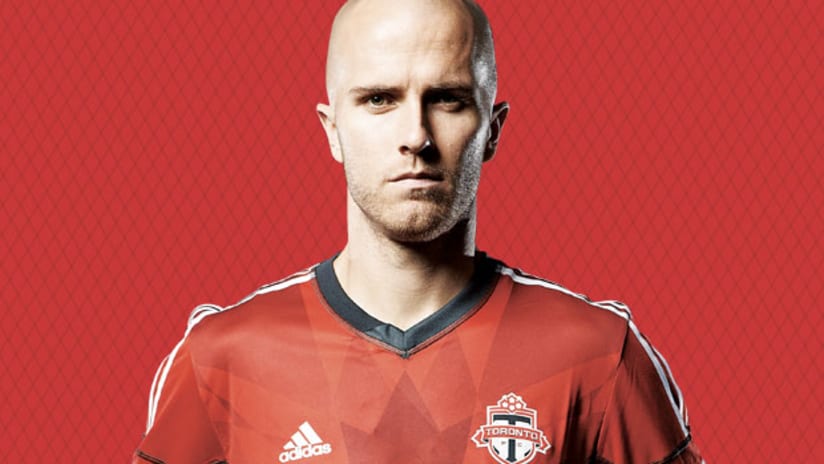In conjunction with the beginning of the 2014 MLS season, MLSsoccer.com wraps up its series covering some of the biggest names in the league this year. And closing the book is senior editor Simon Borg with an in-depth look at Michael Bradley – what makes him tick, why he made the high-profile move from Europe back to MLS, and how he hopes to turn around the fortunes of Toronto FC, who open their season on Saturday at Seattle (4:30 pm ET, NBCSN in US, TSN/RDS2 in Canada).
Michael Bradley saw the writing on the wall.
In front of US media members at the most recent MLS All-Star Game in July 2013, new AS Roma head coach Rudi Garcia spoke of the grand plans he had in store for the American central midfielder – "Michael is not only a great player, but a man of great quality … For the future, Michael is going to be a very important player for us, that’s for sure."
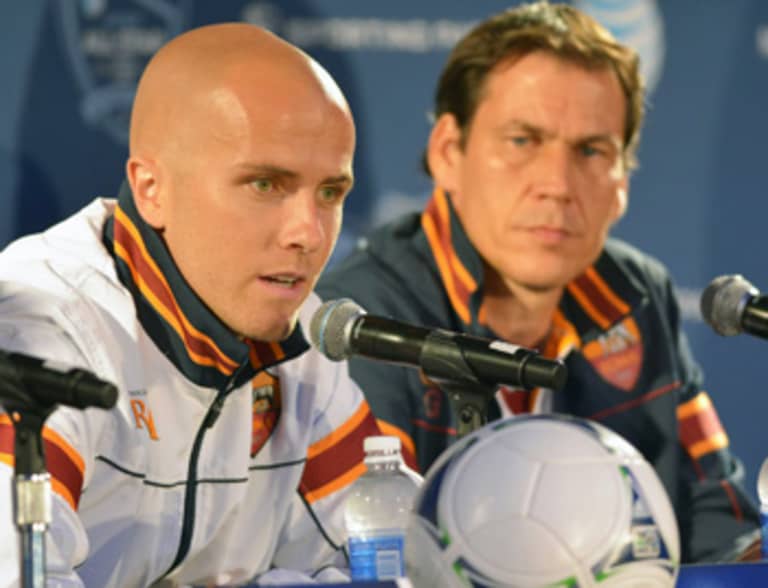
But less than six months later in January 2014, the French head coach made yet another move in a decidedly different direction, acquiring a fifth midfielder on the transfer market, seemingly dropping Bradley further down the depth chart.
And it didn’t take long for the US World Cup stalwart to confirm the inkling he had when Garcia came on board in the summer. Bradley was in and out of the AS Roma starting lineup at the start of January with five starts and six sub appearances through 18 Serie A matches. It was clear to him that it wasn’t much of a competition anymore.
"I was more than happy to stay and to continue to fight for my place and fight for opportunities," Bradley told MLSsoccer.com in a late February sit-down. "But at a certain point, to do that you need a coach who sees something in you. Because otherwise it’s just a one-way street. You're working and fighting and scrapping and clawing for any little opportunity. But if the coach doesn’t see it, it’s never going to be any real opportunity to play consistently.
"There’s no problem with that, but for me at that point, I was done with that,” he continued. “I felt like I deserved more. The coach there didn’t. Again, there are no issues, but it was time for me to move on."
Easier said than done. The top executives at American-owned Roma, specifically sporting director Walter Sabatini, knew Bradley much better than Garcia did and were not ready to part ways so easily with a player they considered valuable. If he was going to leave the club, it would come at a hefty price: $10 million.
The chances appeared slim that another European club would splash that kind of money in the January window for a player who wasn't even starting for his club team. In fact, most of the clubs interested wanted a loan deal.
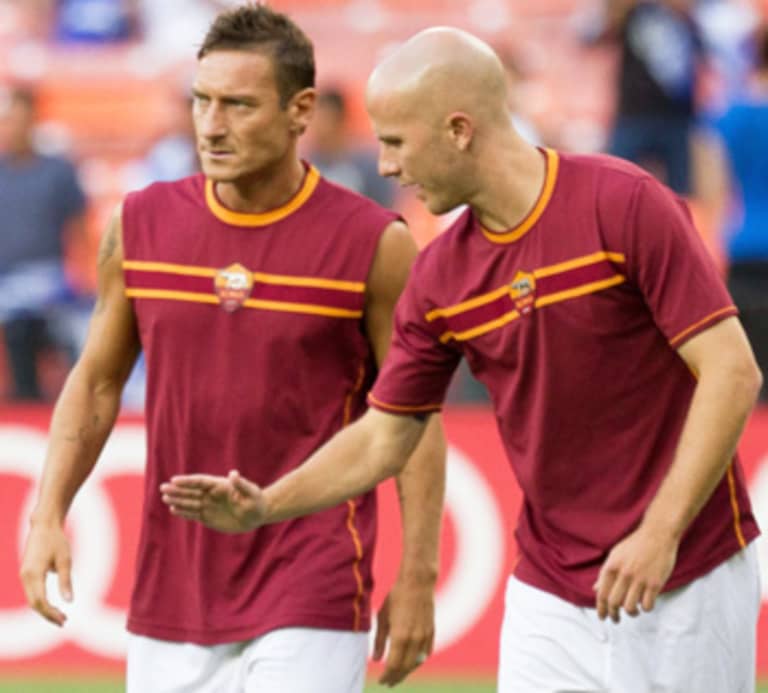
"I said to [Sabatini]: 'I’m not happy playing a bit part. I’m not happy playing 10, 15, 20 games a year. It doesn’t do it for me,'" Bradley said.
At the prime age of 26 and with two seasons left on his Roma contract, Bradley didn't want just any move. He wanted to be at a club where he could play an integral role. That was the next natural progression in a career that had seen him rise through the ranks of European soccer to a Serie A title contender.
But would it happen in Europe? Bradley was in a similar position after a breakout World Cup in 2010: hopeful that a club would see him as a foundation player. But it didn't happen then – "There were no options [in 2010]," he said – and it wasn't too promising in December 2013 either.
"There were options," Bradley said about the most recent list of European bidders. "Probably not as many as you’d think. Probably not as many as I would have hoped."
The loan interest came from Italian clubs Hellas Verona and Bologna, while Eintracht Frankfurt and Schalke 04 were also sniffing around for a loan to the German Bundesliga. But no team was as aggressive as Toronto FC, who pulled out all the stops to land him. And the deal got done just before English club Sunderland came into the picture at the 11th hour seeking an outright transfer.
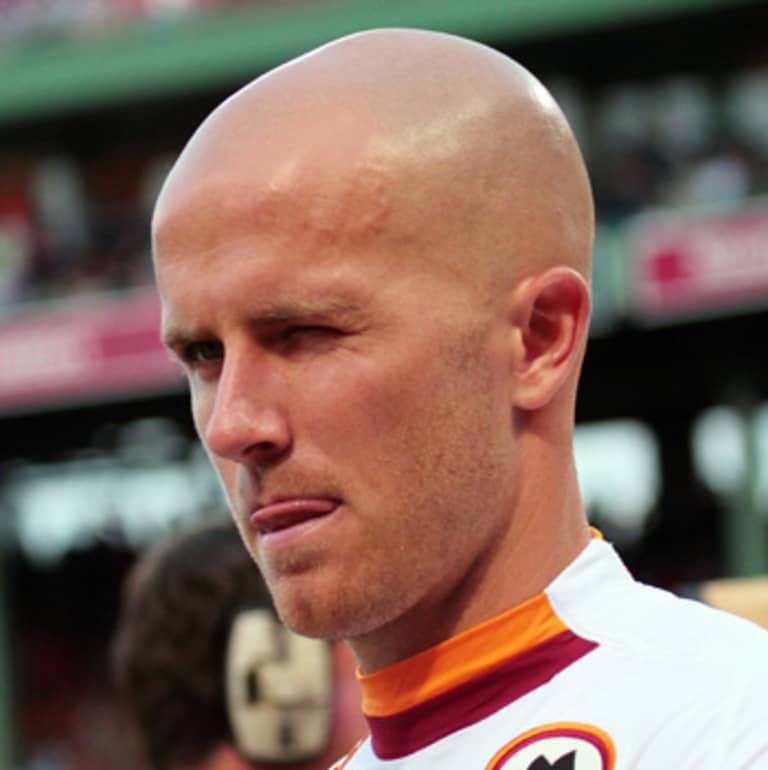
"Toronto was the only club in the world that said to me: 'We want you, we see you as being a huge part of what we’re doing here. Today and going forward for a lot of years. And we would do anything and everything to get you here,'" Bradley said.
"So the opportunity to come to Toronto and play a huge role in every part of this team and this club, and having to take a lot of responsibility and put it on my shoulders, that motivates me. It challenges me."
And Bradley is all about challenges.
–––-
Dangling from the ceiling inside the Princeton University soccer locker room in the early '90s, aka the school’s hockey rink facilities, was a rickety miniature hoop. If you were a member of the soccer team coached at the time by Michael's father, Bob Bradley, you wouldn't think anything of it. But the toddler Michael Bradley wanted to conquer it.
"A ball would barely fit through the hole," said former MLS player and Princeton alum Jesse Marsch. "Michael would shoot 1,000 times a day to see how many he could get in a row."
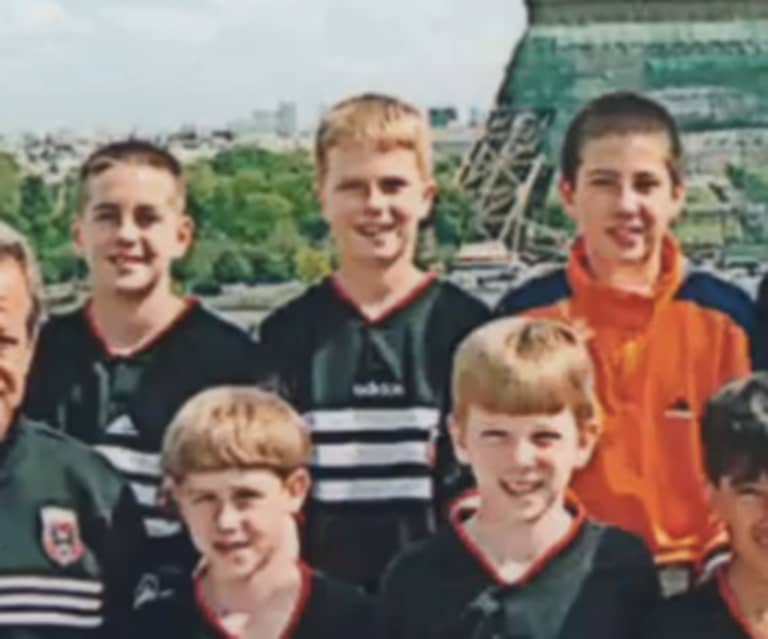
A few years later, the hoop became a chair down the hall from the Chicago Fire locker room, where his dad was a head coach in MLS. This time the 13-year-old Bradley was competing against the Fire's
Dema Kovalenko
to see who could thread the ball through the legs of the chair. That's when he wasn't begging Fire star
Hristo Stoitchkov
to join his team for the scrimmages.
"He was just a little boy and he always told me, 'Hristo, please I'm on your team,'" Stoitchkov recalled. "He always wanted to win and he always knew that with me he'd always win."
And even when Bradley turned professional at 16 with the New York MetroStars (they would become the New York Red Bulls in 2006), there were still a host of pregame competitions based around getting the ball inside trash cans, games of "horse," and crossbar challenges with novel twists.
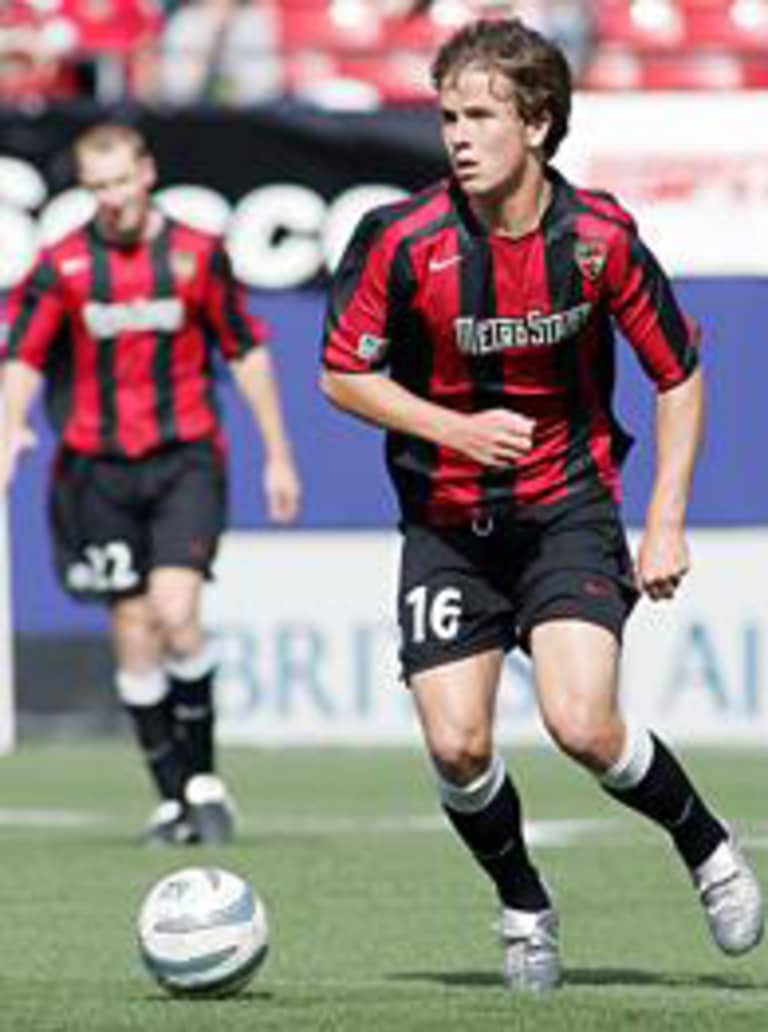
"While the ball was still in the air, you'd have to get it and put it in the back of the net before it hits the ground," recalled Bradley's former MetroStars teammate
Jeff Agoos
. "He was always trying to create some sort of competition. It was part of his DNA."
Use your imagination and you can see how that same competitive streak extended to card games with friends – "We'd get pretty upset if one of us lost," said ex-MetroStars teammate and close friend Tim Ward.
But surprisingly enough, Bradley was never a video game guy.
"I can confirm he never picked up a controller," said Julian Valentin, a roommate of Bradley's during his days at Under-17 national team residency camp.
There may have never been a Valentin vs. Bradley matchup in FIFA, but they would get creative.
"I remember playing this game in the basement [of Bradley's residence in New Jersey] where we had to chip a ball and have it land in a seat," Valentin recounted. "I remember things getting so intense that I had to take a step back and say, 'We're playing a game!'
"It's supposed to be a light, fun game, but there's always a purpose. Everything he's done professionally and every move he's made has had a purpose."
–––-
On some mornings, the alarm would ring bright and early at 5 am in the room shared by Valentin and Bradley at the IMG Residency Academy in Bradenton, Fla. It’s where the best young soccer players in the United States under the age of 17 receive elite training and a high school education to this day.
That 5 am wakeup call was the cue for the 15-year-old Bradley to head down to the IMG dining hall, where he'd be the first to breakfast ahead of the occasional 9 am match organized by the academy. After a big meal, he'd head back up to sleep for a few hours before joining the rest of his teammates for the actual team meal.
"Even at a young age with nobody watching, he was always looking for an edge so he could be the best," Valentin said. "And as his roommate, he dragged me along with him. We'd eat with the tennis players."
Bradley needed every edge he could get early on in his career. He admits he was “never the best player growing up” and he wasn't a starter for the US Under-17 national team, then coached by current Philadelphia Union boss John Hackworth.
“He wasn’t as good as other players," Hackworth noted about scouting Bradley before inviting him to Residency. "He was in the regional team but there were guys bigger, stronger and faster and guys who had a much bigger impact … You still felt he had a chance to go farther than the others because he had it technically and tactically and he had this deep, burning competitive mentality.
"In terms of qualities that bode well for future development, he checked those boxes."
What stood out to Hackworth was the way the smaller and slighter Bradley "bossed" the 5-v-2 drills at that regional camp with a huge smile on his face.
Soon enough, Bradley would be running the small-sided games at IMG in much the same way, usually following practice. But only after he gave Hackworth some extra work to do, requesting the coach’s one-on-one attention to hone other aspects of his game.
"There was no discounting he was Bob Bradley’s son and he had clear ideas in his head of what it was going to take to be a good soccer player," Hackworth said.
"Changing the point of attack, driving balls from distance, situational free kicks, handling heavy passes from a teammate," Valentin said of the Bradley post-practice regimen. "Those are things that most players don't even think about doing for their extra work. And he always had to end on a perfect strike or a perfect set of touches."
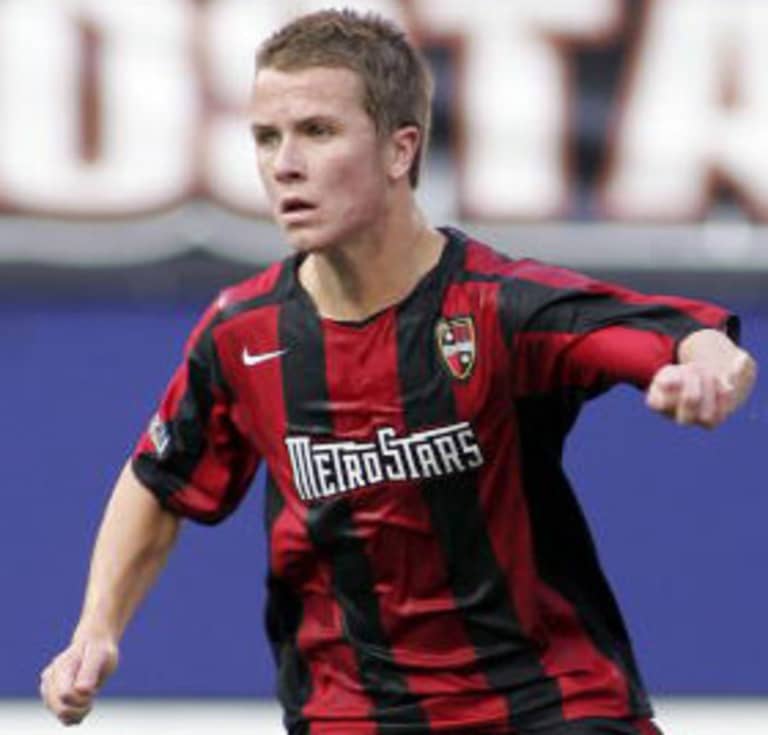
Although the University of North Carolina and the University of Virginia were brought up early on in conversations with teammates, there was little doubt in Bradley's mind that he was turning pro after IMG.
He entered the 2004 MLS SuperDraft and was drafted by his father at No. 36 overall. A broken bone in his foot prevented Bradley from seeing action in 2004, but he was a starter for the MetroStars in 2005, a season in which he caught the eye of the chairman of Dutch club Heerenveen at a preseason tournament in La Manga, Spain.
The Eredivisie side waited patiently for Bradley to turn 18 that year before making him the youngest player ever to transfer from MLS in January 2006 for a $250,000 fee and a share of the next transfer fee.
"Michael grew up in his dad's shadow at the top level and the environment rub
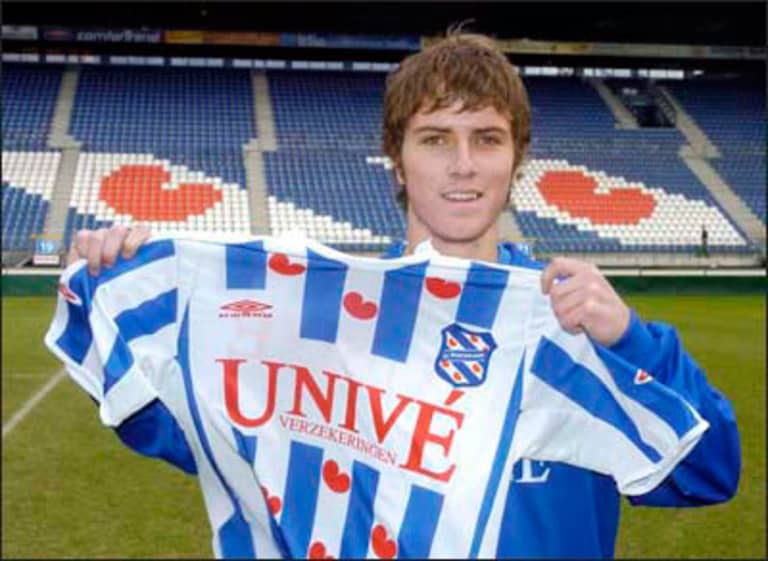
bed off," said Dirk Bruinsma, a Southern California-based lawyer who serves as a Dutch scout and helped seal the deal. "He played like a kid that came up through the European youth system and that was a huge difference-maker."
"There's so much talk about the youth development program in the US and how to continue to push it along," said Marsch, who coached the Montreal Impact in 2012. "All you have to do is just look at the Michael Bradley Project. Put a young player around pro teams and around some of the best players in the world and watch him grow up to be one of the best players around."
–––-
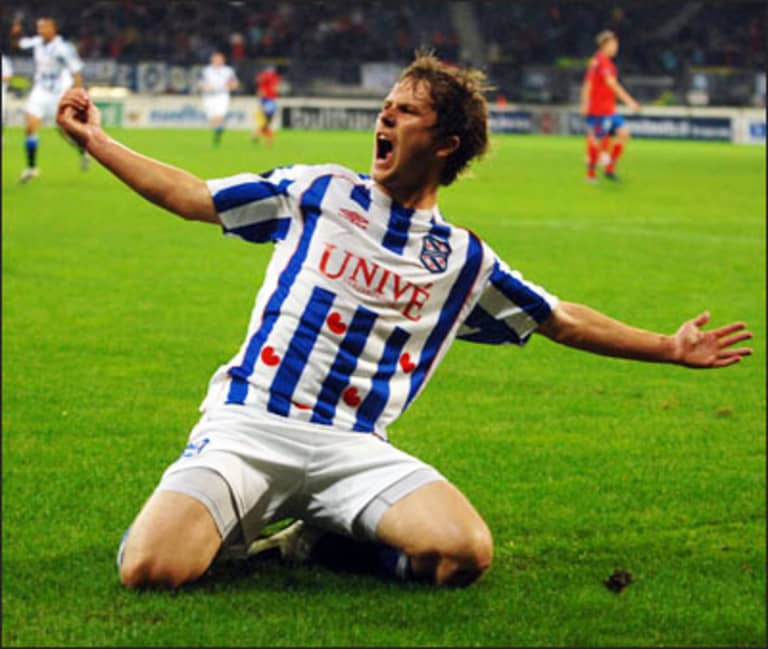
"Here is this 18-year-old American kid and he expected to play on the first team," said LA Galaxy forward
Rob Friend
, who was a teammate of Bradley's at Heerenveen. "Obviously most guys at that age keep their mouth shut and are happy to be there and he was there to win a starting spot. I think that's his mentality and that's why he's made it to where he has."
At Heerenveen, a town where the population can fit in the soccer club's stadium, Bradley found the ideal launch pad for a European career.
He played in practically every position during his first full season, including right back in a Europa League match – "They trusted me when it came time to make a sub," said Bradley – and then exploded during his second full year, setting a new record for goals by an American in Europe with 21 just before turning 21.
"In Holland, I learned what it meant to play in Europe," Bradley recalled. "I learned what the environment, what the atmosphere was going to be like and I learned that I had to be ready to do anything I could to get on the field."
Bradley went to the 2008 Olympics on the heels of that 21-goal campaign. With a season left on his Heerenveen deal, Monaco (France) and Sampdoria (Italy) were chasing after a transfer, but Germany's Borussia Mönchengladbach, a club situated a little more than 100 miles from Heerenveen near the Netherlands-Germany border, stepped up before the close of the
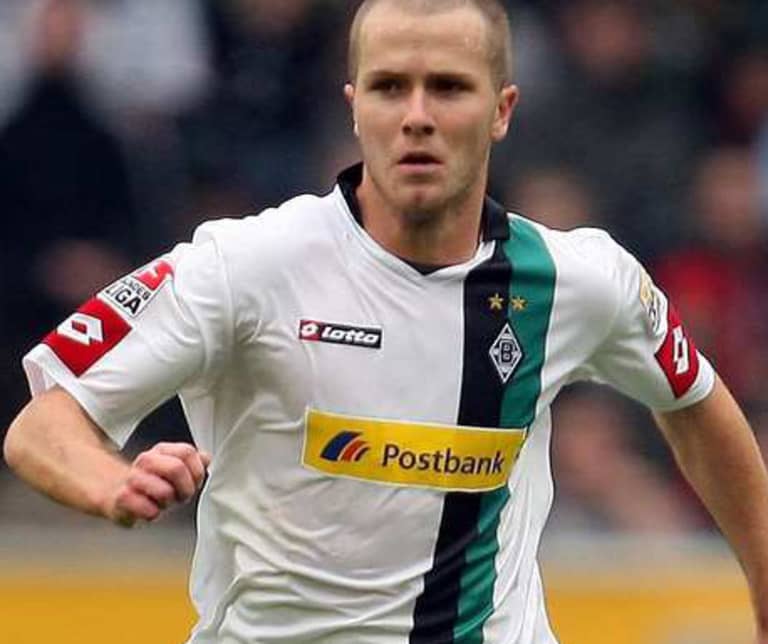
summer 2008 window. After winning promotion to the Bundesliga, they needed all the help they could get.
"I spoke to the sport director and they were interested in him," said Friend, who made the jump from Heerenveen to 'Gladbach before Bradley. "I said, 'Listen, do everything you can do to get this guy in.'"
During his days in the Netherlands, Bradley began receiving his first call-ups to the senior US national team, but he says he noticed a gap in the level of play between the Eredivisie and the international level. That was quickly erased after his move to Germany.
"It was clear for me from the first time I stepped on the field in the Bundesliga that now you’re playing in one of the best leagues in the world," Bradley said. "So at that point the level goes up and I’m either going to figure it out and rise to that level or I’m not."
If the quality of play rose, so did the pressure. But the then 21-year-old Bradley responded, improving every facet of his game as a central midfielder and becoming a key cog for the relegation-threatened Foals – as well as a regular patron at Michelangelo, one of two Italian restaurants he frequented daily in Mönchengladbach.
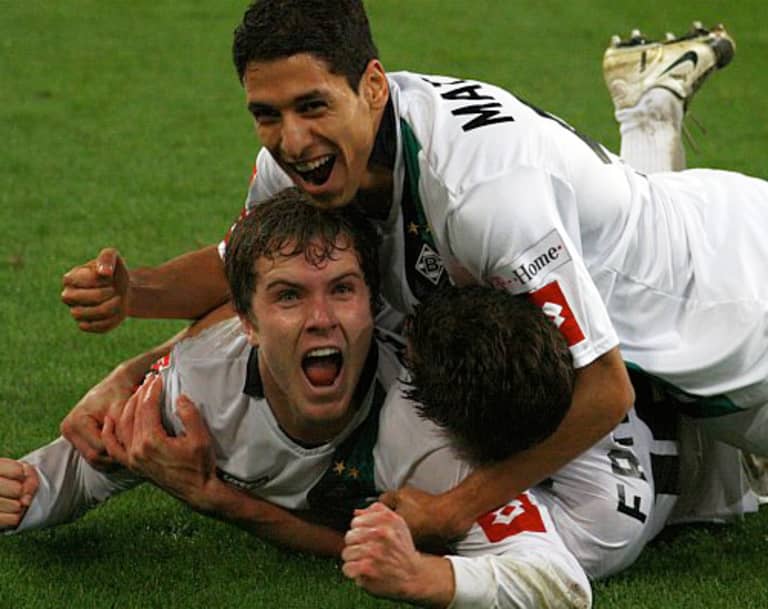
"Mike's a legend there," said Friend, who lived a block away from Bradley at the time. "He ate there 365 days a year. No joke. I don't think they ever retired his jersey, though."
When he wasn't eating at the Italian spots, the families of Friend and Paul Stalteri, Canadian internationals and Bradley’s Mönchengladbach teammates, hosted him. And Stalteri, who had prior experience in England, proved helpful with advice for Bradley when he went on loan to Aston Villa before the end of his contract at 'Gladbach in January 2011.
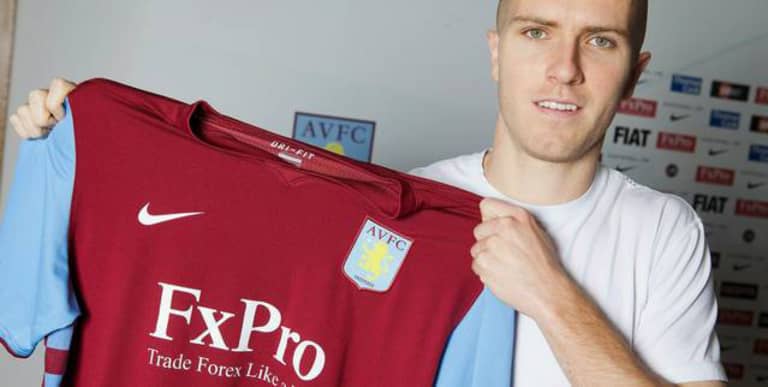
Current Red Bulls global soccer chief Gérard Houllier was the Villa head coach at the time and he made it clear that the American "was at the club to stay," according to Bradley. But the Frenchman suddenly fell ill and was hospitalized in April before ultimately resigning. His replacement, Gary McAllister, opted to play the club's most tenured players and Bradley's loan expired with just four appearances.
"It was still an experience that I grew from," Bradley said. "The frustration of not playing. The frustration of being in a place where there weren’t enough guys who had the commitment and determination that I did. It taught me a lot.
"It taught me that as a footballer you have to have the mentality that just says, 'I’m not going to let anybody put me off. I’m not going to let anybody take away what I’m all about.'"
Just weeks later, Bradley's contract with Mönchengladbach was up. With Swansea (England), Racing Santander (Spain), Panathinaikos (Greece), Standard Liège (Belgium), and Lokomotiv Moscow (Russia) lining up for the free agent, Bradley opted for what was "on paper, a small step backward" and signed a two-year deal with small Italian club Chievo Verona.
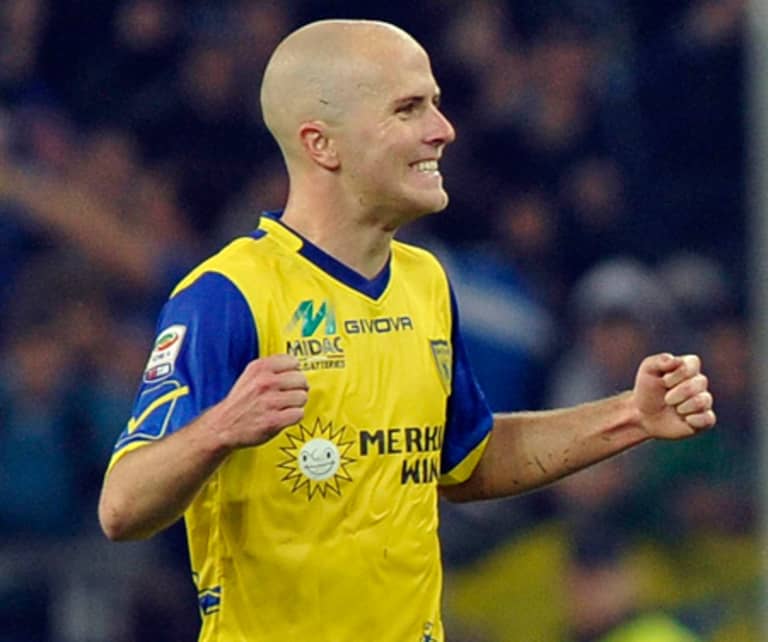
Growing up, Bradley studied Arrigo Sacchi's AC Milan zonal system alongside his father and went on a trip to Milan with his dad's Princeton squad as a six-year-old. Italian soccer had a special place in his heart and he also remembers watching the 1994 Italy World Cup team training at Pingry School in New Jersey – "Growing up, Serie A was probably the best league in the world," Bradley says.
And just like he did in the Netherlands and Germany, Bradley dominated yet another language and was fluent in Italian in three months – "That guy is a linguistic king," said Friend – but the real education happened on the training fields of tiny Chievo, who battled to survive the Italian top flight with limited resources.
"The small Italian teams are convinced that the only way to compete is to tactically be perfect and tactically be prepared for every scenario," Bradley said. “The day before a game at Chievo we’d be on the field two-and-a-half hours and the coach would be screaming like a mad man going over throw-ins and goal kicks and kickoffs. He would have 11 guys lining up and telling us what to do on a kickoff."
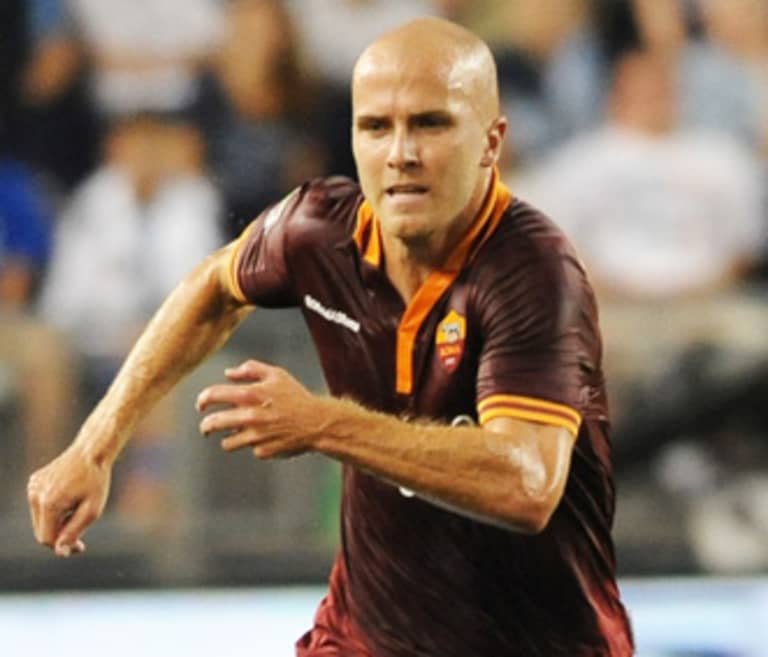
It was the opposite extreme when he was sold to AS Roma in the summer of 2012 for a fee of $4.6 million. He had arrived at one of the biggest clubs in all of Italy, one which called one of the most important cities in the world home.
"We go out to dinner and he's speaking Italian to everyone and everyone knows him," Marsch said about a visit he paid to Bradley in The Eternal City. "The next day he plays for Roma and everyone in the stadium loves him and there are 'Bradley' jerseys everywhere. There was so much to be proud of the person he's become and the player he's become."
––––
It didn't matter that Bradley was on his way to becoming one of the most accomplished American players ever to play in Europe. Many still questioned his place on the US national team during his father's tenure which began in late 2006, when Michael was a 19-year-old in his first full season at Heerenveen.
That dynamic was an extra burden that other USMNT players didn't have to bear.
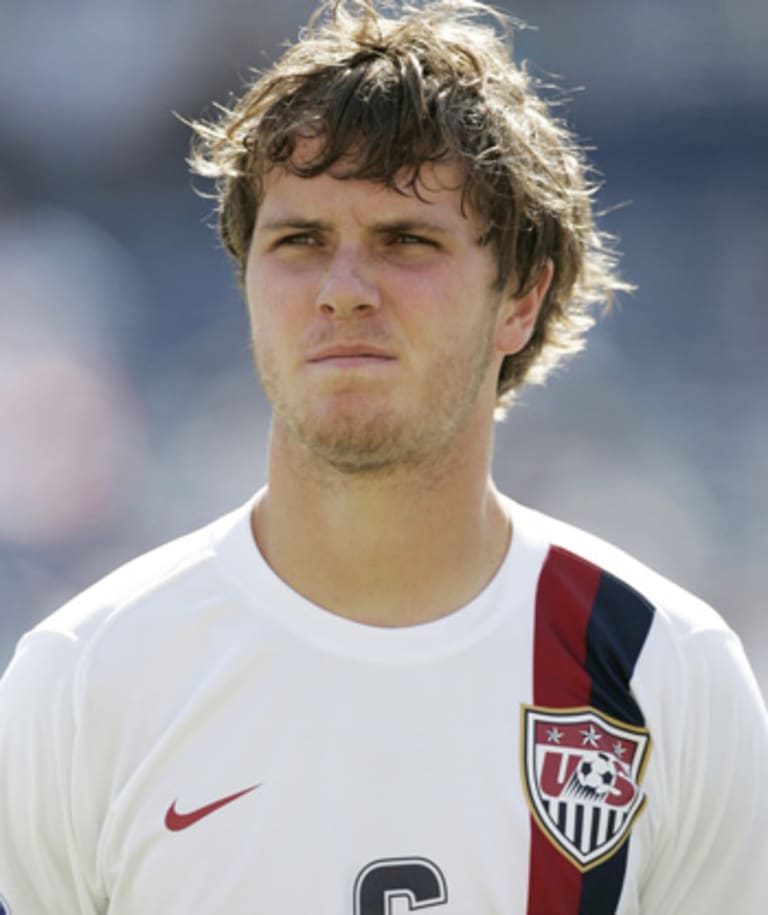
"In the beginning, no one felt he deserved to be a part of it and I think a lot of that motivated Michael," said Marsch, a former US national team assistant, about the early days of Bradley's USMNT career. "I don't think anything made him more angry than having to hear that over and over and having to prove himself every day. It motivated him and kept him focused."
Former USMNT forward and current ESPN broadcaster Taylor Twellman recalled opting for an icebreaker during the 2007 Gold Cup that went something like this: "Around Michael I'd say, 'What is Bob doing?' On purpose."
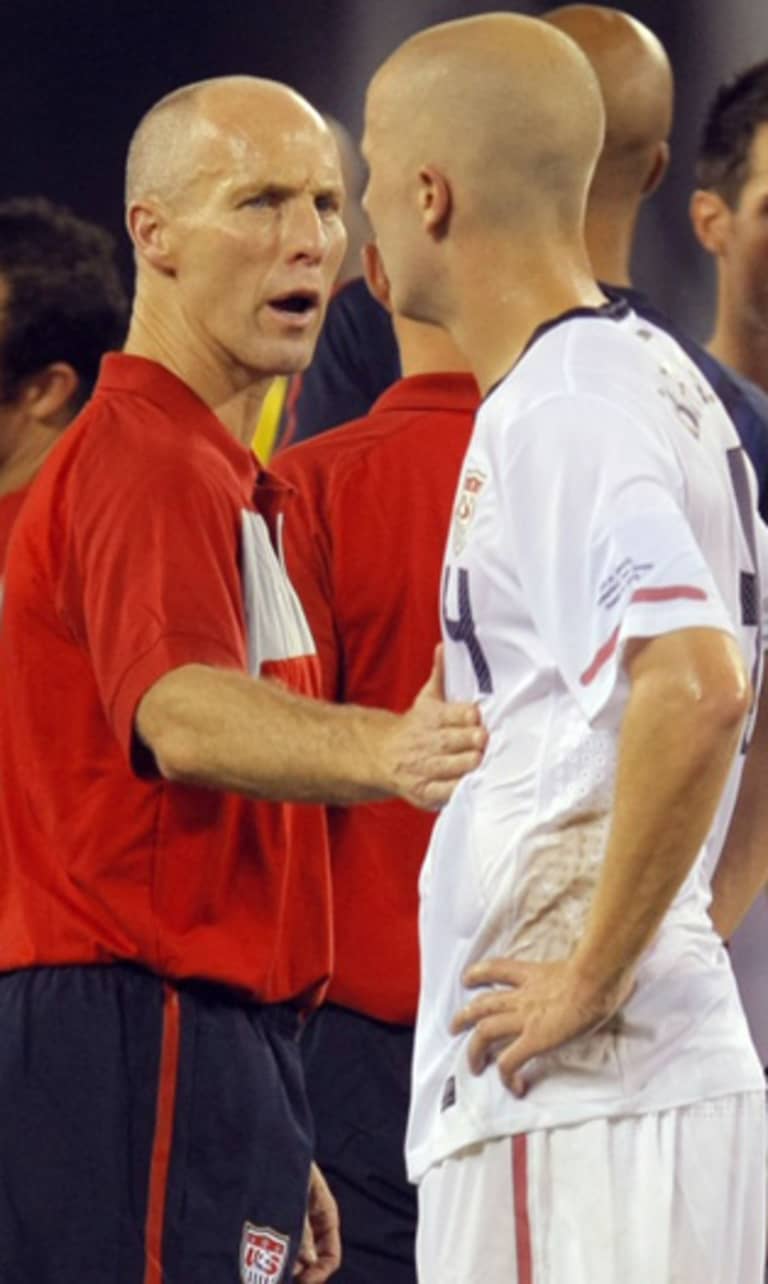
Countered Bradley: "I’m not dumb. I always knew that I was going to be under the microscope and that I had to prove myself even more and that I had to play even better and harder and that whenever I played the team had to win. I know all that and I knew all that. It never fazed me.
"And I had to be smart at times," he continued. "In any team, there’s going to be guys who are unhappy and who need to blow some steam. And I had to be smart and I had to be good at reading certain situations. And that if there was a small group of guys going out for dinner on a certain night, depending on the situation, maybe it was something that I’ll go with the other guys or I’ll stay."
And the nepotism chatter existed despite the fact that by all accounts Bradley the coach treated Bradley the player like any member of the squad.
"I've seen tense moments before when they say something harsh to each other and then they'd put it all aside later," said Hackworth, a former USMNT assistant. "You have to have thick skin to be able to switch like that."
When did it finally go away? When was popular opinion about Bradley the player not colored any more by the fact that his dad was the head coach?
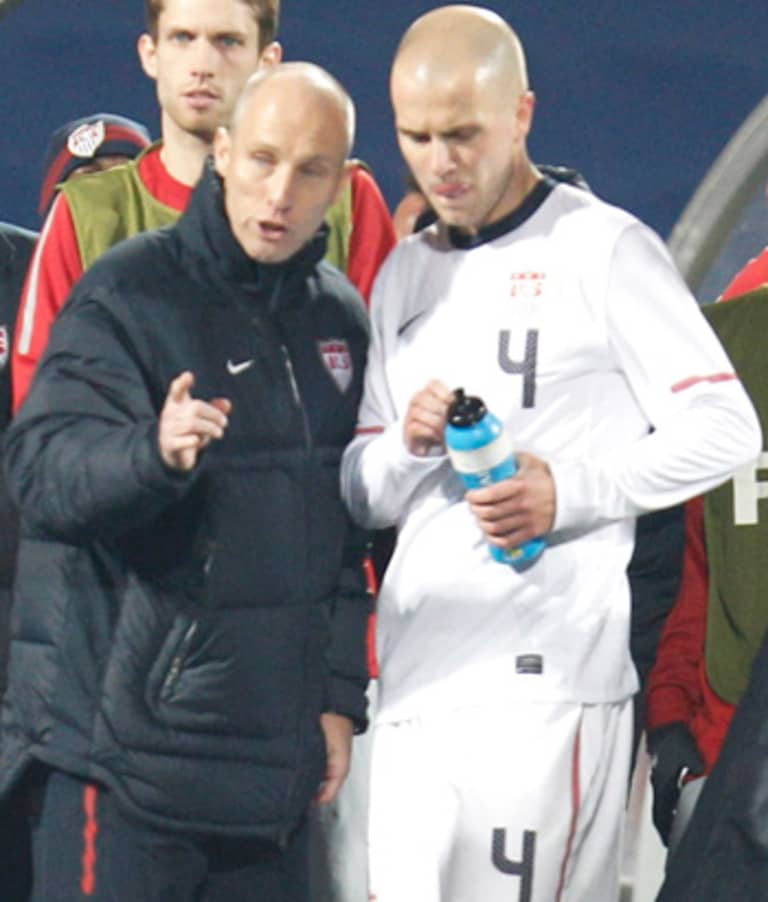
Twellman thinks it was his two-goal performance vs. Mexico in a World Cup qualifier in February 2009.
"If you're still questioning him after the World Cup qualifier against Mexico, then you're naïve," Twellman said.
Mike Sorber, a former USMNT assistant and currently on the Union coaching staff, thinks it was the Tampa game vs. Ecuador in March 2007, when Michael didn't start – "I had the job to tell him he wasn't starting," Sorber said – and came on at halftime to spark the team to a 3-1 win.
Others think the questions only permanently disappeared when Bradley won his starting spot back under current US manager Jurgen Klinsmann.
Former USMNT captain Carlos Bocanegra feels that Bradley always earned the minutes he got in red, white and blue. But he did pick up on a slight difference in his demeanor under Klinsmann.
"I noticed he was able to come out of his shell as a person a little bit more because he didn't have to worry about managing the situation he had earlier," Bocanegra said in reference to Bradley playing for his father. "When Jurgen ended up coming in, Michael was still the same guy, a hard worker and intense, but maybe he was able to kind of let his guard down as a person a little bit."
Added Sorber: "The funniest part for me is the fact that people were very critical of Michael in the beginning and now he’s labeled as the face of the team. The funniest part for all of us is that no one could see it at the time.”
–––-
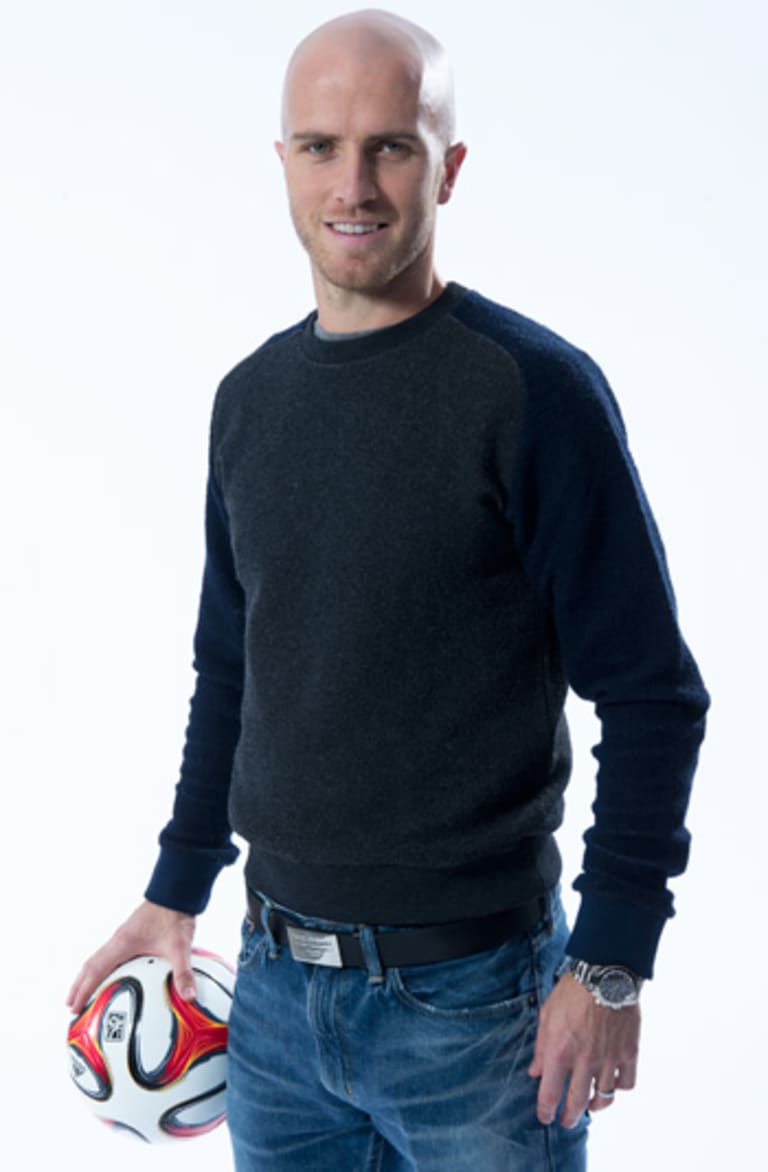
"It’s always interesting, people’s perception," Bradley said. "Even now, people have this perception of me that I never smile and I’m so serious. Again, it doesn’t bother me, but I can’t help but laugh at it. For anyone who really knows me, it couldn’t be farther from the truth."
The painting of a player's public image is an exercise that amuses Bradley. He doesn't appreciate the simplistic method adopted by mainstream media and fans who latch on to one or two visuals or episodes to determine an athlete's identity.
But North American soccer fans haven't spent that much time with Michael Bradley. He left MLS back in 2006 and we've only gotten brief glimpses at his personality while on national team duty. In that span there have been precious few personal moments to help paint the Bradley narrative.
His playing style, his steely glare, his competitive scowl, his clean shaven head and his team-first attitude have given rise to the typical clichés about him: serious, professional, hard working, competitive, driven, soccer-obsessed.
But conversations with those who know him closely reveal several more layers to Bradley, and his profile could use some updating based on recent events.
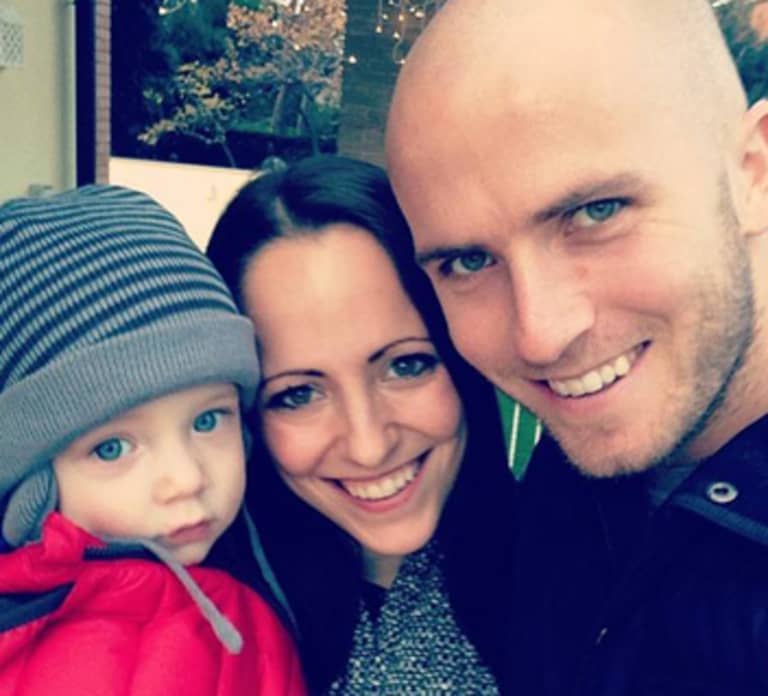
More than one person points out how Bradley has changed over the last three years during which he's married his wife Amanda and together welcomed a son, Luca, in the fall of 2012. Both names are fixtures on his soccer cleats.
"I like to spend time with my son, with my wife. I like to be at home. For me there’s nothing better because we travel so much as footballers," Bradley said. "For me, I’m a simple person. There’s not much else. There are not a million other things. For me, it’s my family and my soccer."
Added Marsch: "One of the best things for him is having a family and having something else to be passionate about other than just soccer. Having a wife and son has allowed him to get away from football at times and look at things from a different angle and see things differently."
People around him say he's cultured, worldly and smart. He says he's not necessarily book smart, but he’s perceptive and aware of his surroundings, picking up on all the little details. Toronto FC manager Ryan Nelsen admits that Bradley’s keen eye “keeps me on my toes.”
Bradley demands respect and loyalty and it's easy to notice from discussions with people who tread carefully when it comes to revealing something about him.
He also keeps a tight circle: "He probably doesn't let a lot of people in," Friend said. "But if you're in his circle, there's not a better guy, a better friend that you want on your side. There's not a more loyal guy."
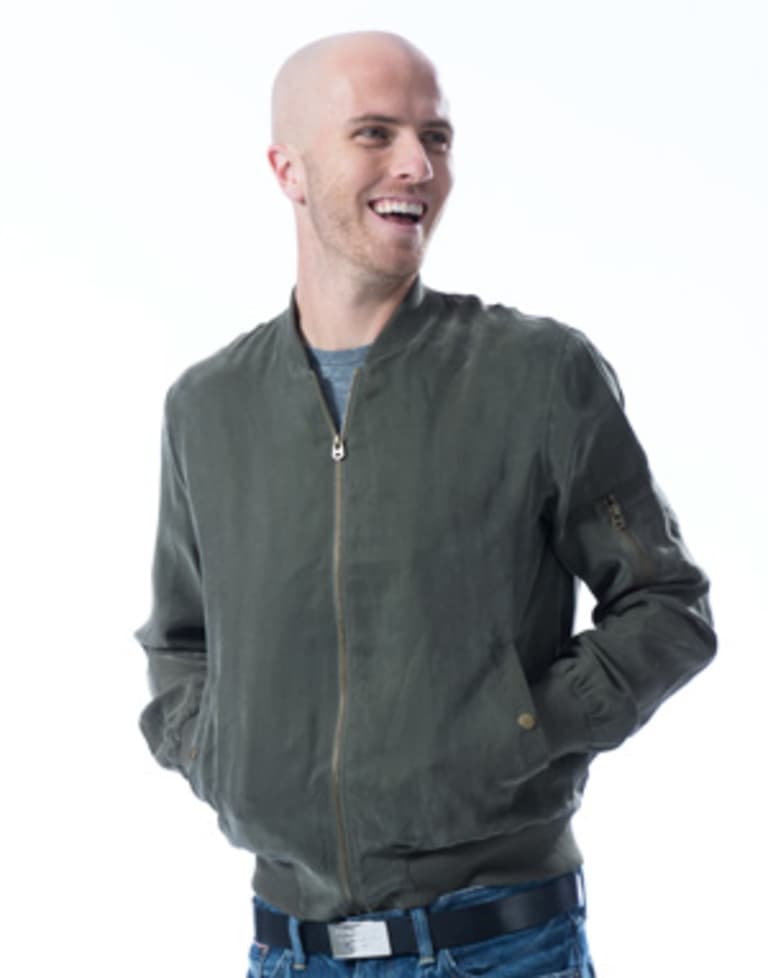
Bradley has a dry sense of humor and loves to laugh, especially with those in that tight circle.
"Put him in the same room with [USMNT goalkeeper] Brad Guzan and everybody would see him for who he is," Bocanegra said.
Bradley believes in principles and doing the proper thing, including treating people right, from cab drivers to club presidents.
The bald head is not part of a marketing gimmick – AS Roma announcers coined the Lex Luthor nickname while in Italy – "My back was always against the wall in regards to the hair," Bradley admitted.
He’s not a fashionista: “Will you bring what I have to wear? Because I don’t have much,” he told someone coordinating a recent lifestyle photo shoot.
Clearly, Bradley’s not into self-promotion and you won’t see a self-indulgent goal celebration from him, especially after the time he took off his shirt as a kid in a state cup tournament and it got back to his dad.
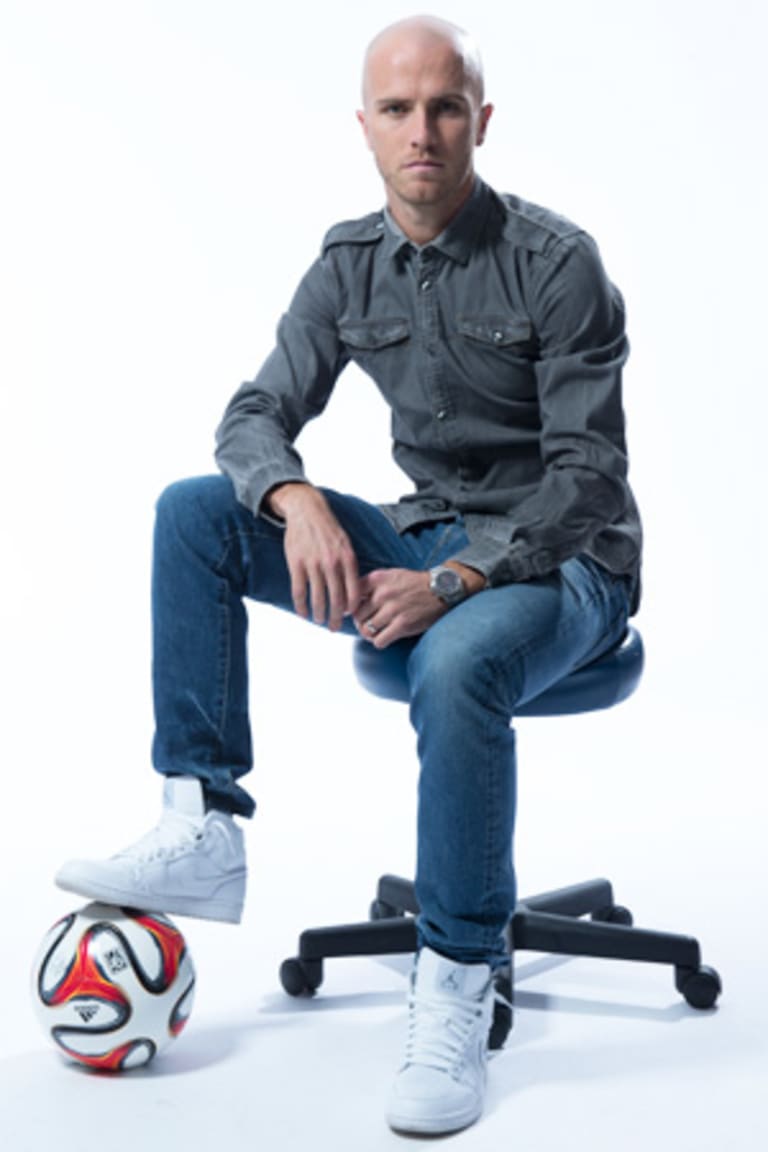
So it should also come as no surprise that he has no plans to get on Twitter, although he monitors it anonymously.
"For me, I prefer to spend my time doing other things and doing things on the field that are worth talking about," he said.
That's not to say that Bradley is anti-media. He'll likely be doing more media over the next season than he's done in eight years in Europe.
He also thinks the back-and-forth with media at the 2009 Confederations Cup has been blown out of proportion.
"After a game at the Confederations Cup, I give a little bit back to a few guys and didn't let them off the hook so easily for stuff they wrote and said," Bradley commented. "I still do that today. Maybe my way of going about it is slightly better or slightly more controlled. But just as the media and journalists are critical of players in moments and have every right to be, I feel we have the right to be critical of the media in a straight, honest way."
He's efficient with his words — every one of them is calculated and deliberate during interviews —and in his ability to think through and break down issues.
"He's good at taking things that are complex and making them simple for people to understand," Toronto FC general manager Tim Bezbatchenko noted. "That's difficult to do and he does it."
People who know him say he has a great ability to focus.
"I don’t think I've ever known anyone so driven to be successful and that's saying something considering my relationship with Bob,” Marsch said. “I even think that Michael is a notch above Bob in that he is even more solely focused on one thing than Bob is."
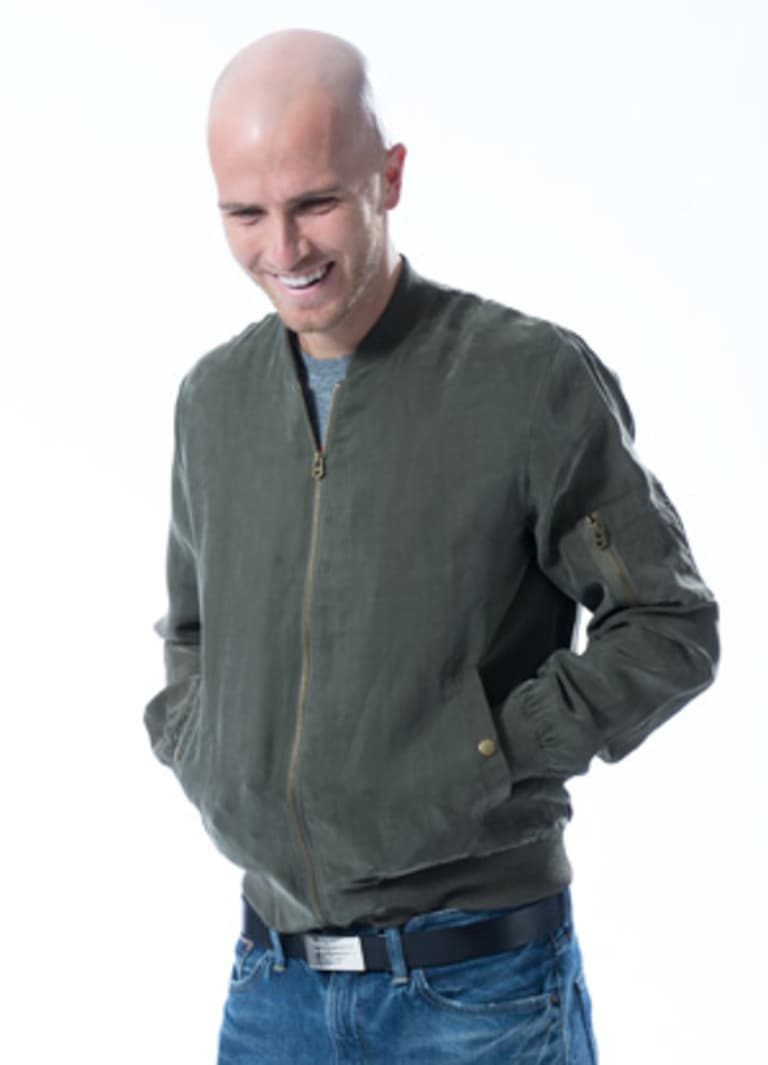
He's also his own toughest critic, according to Bocanegra and current USMNT defender Clarence Goodson.
"We all have pride and take our jobs very seriously, but you just amp it up a little bit with Michael," Goodson said. "He can be hard on himself unnecessarily at times, but that’s certainly how you get to the top of any profession."
And if he's not already a spitting image of his dad – "They give the exact same interview, the way they speak in phrases," said Twellman – Bradley wants to be like his father, who was the best man at his wedding and whom he calls his “best friend.”
"He’s had such a big role in who I am as a player and the way I see things on the field and how I look at the game and obviously he’s had an even bigger impact and influence on who I am as a person, what kind of dad I am," Bradley said. "I hope I can be as a good a dad to my boy as he was to me."
"Michael's not a mystery wrapped in a riddle," Marsch said. "He's a straightforward, honest, hardworking guy who cares about the right things, tries to treat people the right way and that's what draws people to the way he plays and what draws people to him as a person. He's exactly what you see."
–––-
When AS Roma visited North America on their All-Star tour last summer, they stopped in Toronto, where Bradley asked one of the Toronto FC staffers for a tour of their KIA training grounds (he’s since called it the nicest training facility he’s ever seen).
It's almost as if he had a premonition at what would take place less than six months later.
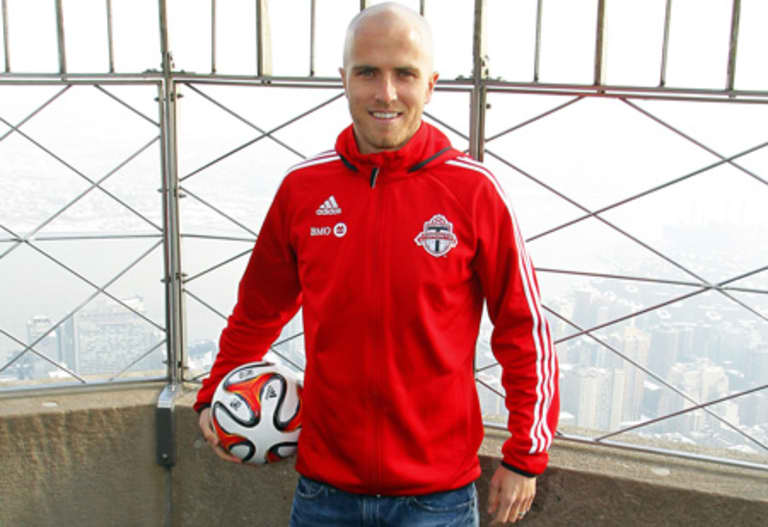
"I've never been afraid to make big decisions in my career," Bradley said. "I feel like in your career and your life, you have to have the ability in a calm, smart, focused way look at everything and size it all up and make a decision based on what is going to challenge you to become a better person and a better player. Everything I’ve done in my career, from the day I left home to go to Bradenton till today, it’s always been about that."
Many will raise an eyebrow at that statement. What kind of "big decision" is necessary when you have six years of $40 million guaranteed income on the table from any soccer club in the world?
But the cash is merely a very expensive, concrete expression of how Toronto felt about Bradley and how important he was to their organization. No one in Europe came close to valuing him that way, despite all his accomplishments in each of the big leagues.
Maybe it's a product of the reality American soccer players experience in Europe. When Klinsmann pointed out the absence of US stars at the biggest European clubs earlier this year, he bemoaned what he feels is a lack of belief on behalf of American exports. But Bradley switches it around. He says it's the European clubs that lack belief in the American player.
"At the moment there is still a little bit of a feeling that if you can have an American or an Argentine, you’re taking the Argentine," Bradley told media in February about the prejudice faced by Americans on the European scene. "Some people can look at that as feeling sorry for yourself, but that’s the reality.”
So why not stay in Europe and try to fight the good battle? And continue to break barriers like he had all this time? Just last weekend AS Roma's Kevin Strootman tore ligaments in his left knee, opening a starting spot which could have potentially been up for grabs had he remained.
"Sure. You can always talk about 'what if.' What if you stay at Roma and somebody gets hurt after two weeks and I play every game for the rest of the year and I have a great World Cup?" Bradley told MLSsoccer.com before the Strootman injury. "But the reality is: 'What's going to change in six months to make somebody think, 'Yeah, we want him.'
"At that point in time, in the first two weeks of January, what was the situation and what is the best thing for me and my growth and improvement as a player?" he asked rhetorically.
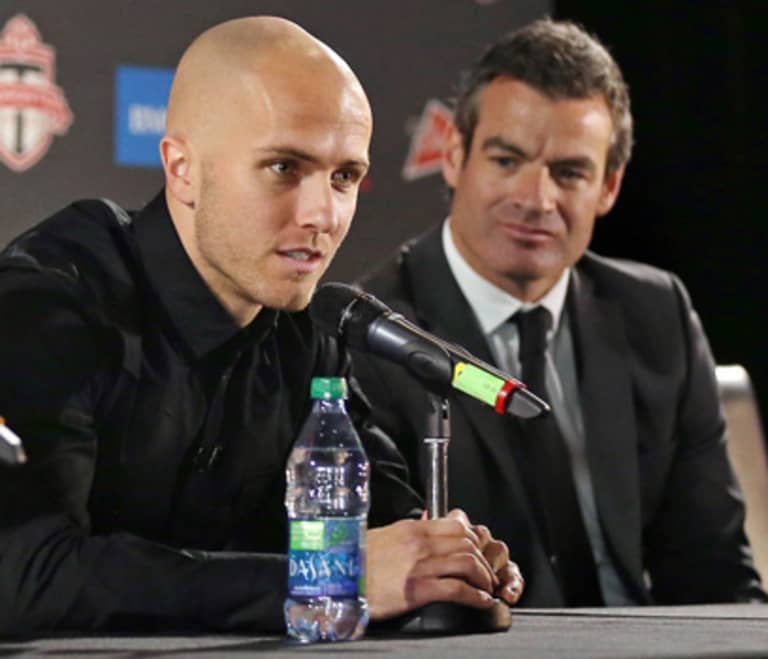
Bradley feels that the next phase in his growth and improvement is being a leader on and off the field at Toronto FC and perhaps even emulating three of the sports legends he admires most: Mark Messier, Roy Keane, Kobe Bryant. This will be the first time he gets a crack at this role in his career.
"You have the opportunity to be the best American player in the history of the game," said Bezbatchenko of his message to Bradley during their courtship, one in which they never met face-to-face before penning a long-term deal. "I really believe that you can only do that if a few things happen: If you play in and win the Champions League or help the US team win the World Cup. And you can also do it by winning championships in MLS.
"If Michael comes in and helps turn around this club and he's a leader and we can get consecutive championship wins – if we can – Michael can go down as a legend."

